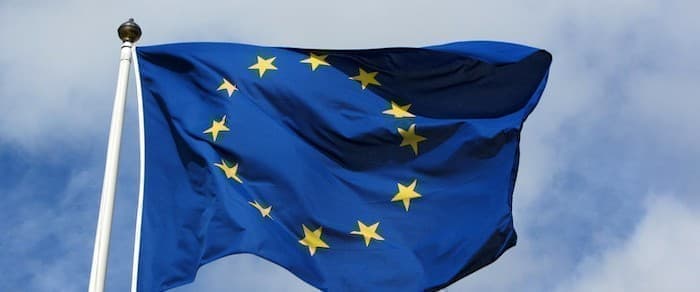Energy dependence of European countries has become evident as a consequence of the geopolitical turmoil during the two Oil Crises of the 1970s and in disruptions of Russian gas supplies in 2006, as well as 2009. In other words, the need for a common energy policy has become an increasingly significant priority for the European Union. Yet, today, the Union still lacks a coherent common energy policy and energy continues to be an essential component of national security agendas despite substantial harmonization efforts. According to European Energy Security Strategy, the EU imports about 53% of the energy it consumes, which makes it the largest energy importer in the world, in contrast with the growing energy demand worldwide. The Union needs an ever-integrated energy market to pioneer the transition to a low-carbon economy and retain Europe’s leading role in climate change as well as global investment in renewable energy. Since the 1990s, the European Commission has been putting emphasis on the cost-effective outcomes that can be achieved through harmonized energy supply security policies at a supranational level. For this purpose, the Framework Strategy for a Resilient Energy Union prioritizes among all five strategic dimensions: energy security, the internal energy market, energy efficiency, decarbonization and research, innovation, and competitiveness with the ultimate goal of fostering energy security and sustainability in the wider region.
Legal Basis of Member States’ Energy Competences
Energy, as a policy area in which the EU shares competencies with the individual Member States, has been of great importance as evident in the founding treaty clauses. The Treaty establishing the European Atomic Energy Community (EUROTAM) serves as the main legal basis of the majority of EU actions with regards to nuclear energy, whereas Article 194(1) of Treaty on the Functioning of the European Union (TFEU) describes the Union policy on energy with emphasis on topics including the security of energy supply, energy efficiency and interconnection of energy networks with the aim of establishing a common internal energy market. However, the same article recognizes the Member States’ exclusive right to establish the conditions for use of their own energy resources as well as the overall energy supply against the possible measures established by the EU institutions. It acknowledges the Member States’ competencies to determine the conditions in which they can exploit their own resources, rendering the decision-making procedures in energy-related issues highly nationalized.
Related: Judge Blocks Biden’s Ban On Oil Leasing
Member States have distinct domestic energy profiles and needs. Most importantly, each state is sovereign over its choice of energy mix and supply connections. The national interests and internal dynamics of the state will be reflected throughout the bargaining at the intergovernmental level. When we look at how energy decisions are made at the EU level, another point of further notice emerges. The current decision-making process for energy and climate policy of the Union is based on the relevant provisions of the Lisbon Treaty which introduced the ordinary legislative procedure overextended policy areas with an enhanced role given to Parliament. The Commission has been increasingly framing the issue of energy as a policy area that requires more supranational governance. However, the transfer of power from the national states to EU institutions has been restricted – mainly due to Member States’ reluctance to transfer sovereignty in energy security matters, particularly with regards to its external dimension.
Prospects for Green Economic Recovery
European Union’s policy agenda under the European Green Deal aims at decreasing greenhouse gas emissions with an ambitious target of at least 55% reduction by 2030. Indeed, the impact of decarbonization will be felt differently in each member state with repercussions on sectoral transformation. The EU’s landmark Next Generation Recovery Fund offers the opportunity to reconstruct European economies that are hardly hit by the Covid-19 pandemic. The European Commission is strongly encouraging 27 member states to speed up the submission of their recovery and resilience plans detailing their investment projects under the €750 billion recovery fund. Hence, Next Generation EU is designed to serve the double purpose of sustainability and digital transformation. However, bureaucratic and administrative challenges persist as the member states must show commitment towards the use of recovery loans and grants to boost green transition, innovation, and digitalization.
Strong support granted by EU institutions in favor of a common decarbonization policy is able to meet the objectives of competitiveness, security, and sustainability vis-à-vis future challenges including climate change. It may alter the EU members’ reluctance to transfer their sovereignty over energy mix preferences and different risk perceptions. Building a bridge between EU-level targets and national commitments is imperative in order to accelerate renewable energy deployments with its subsequent environmental and socio-economic advantages. Clean energy investments offer great stimulus for the post-Covid economic recovery. The introduction of clean energy technologies combined with energy efficiency policies can increase energy security and self-reliance in the Union. Nevertheless, the EU seems to be determined to overcome the possible drawbacks at a time of great challenges in which it is faced with internal and external crises.
By Global Risk Insights
More Top Reads From Olprice.com:
- The Best Oil Stocks As Prices Rebound
- $100 Oil Predictions Soar As Analysts Warn Of Supply Crisis
- Rising Demand Closes The Gap Between WTI And Brent Prices

















